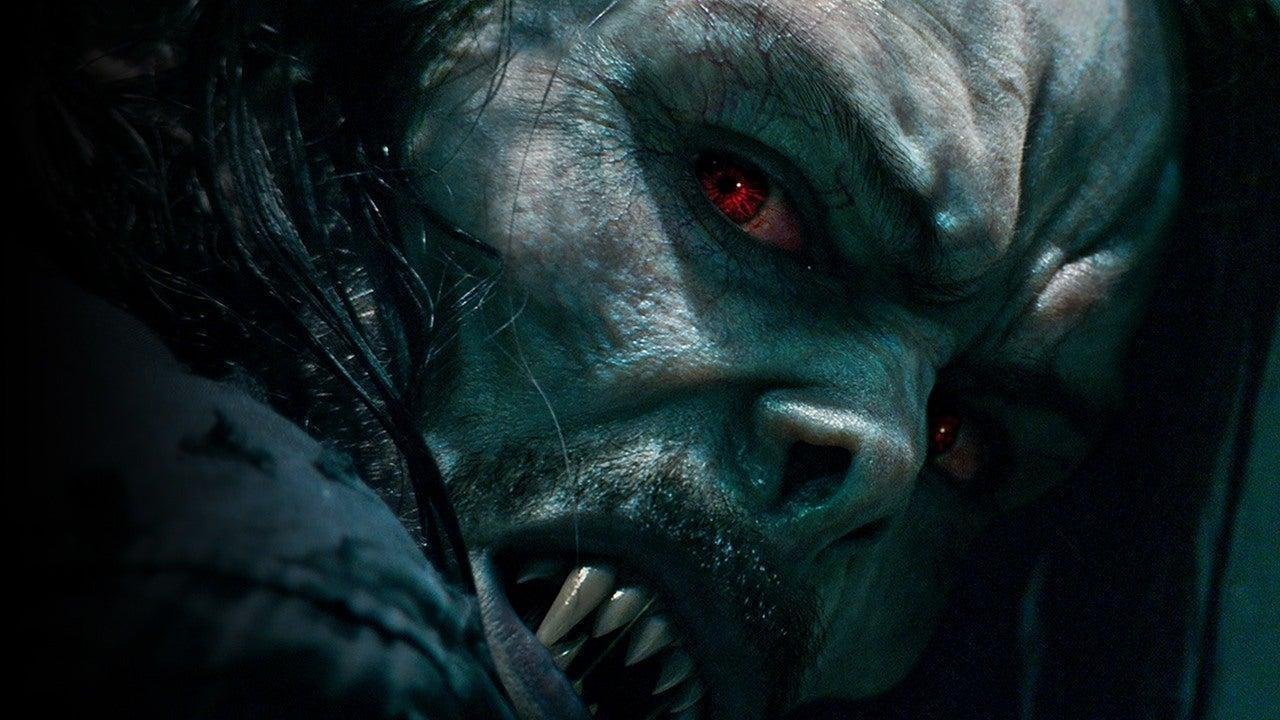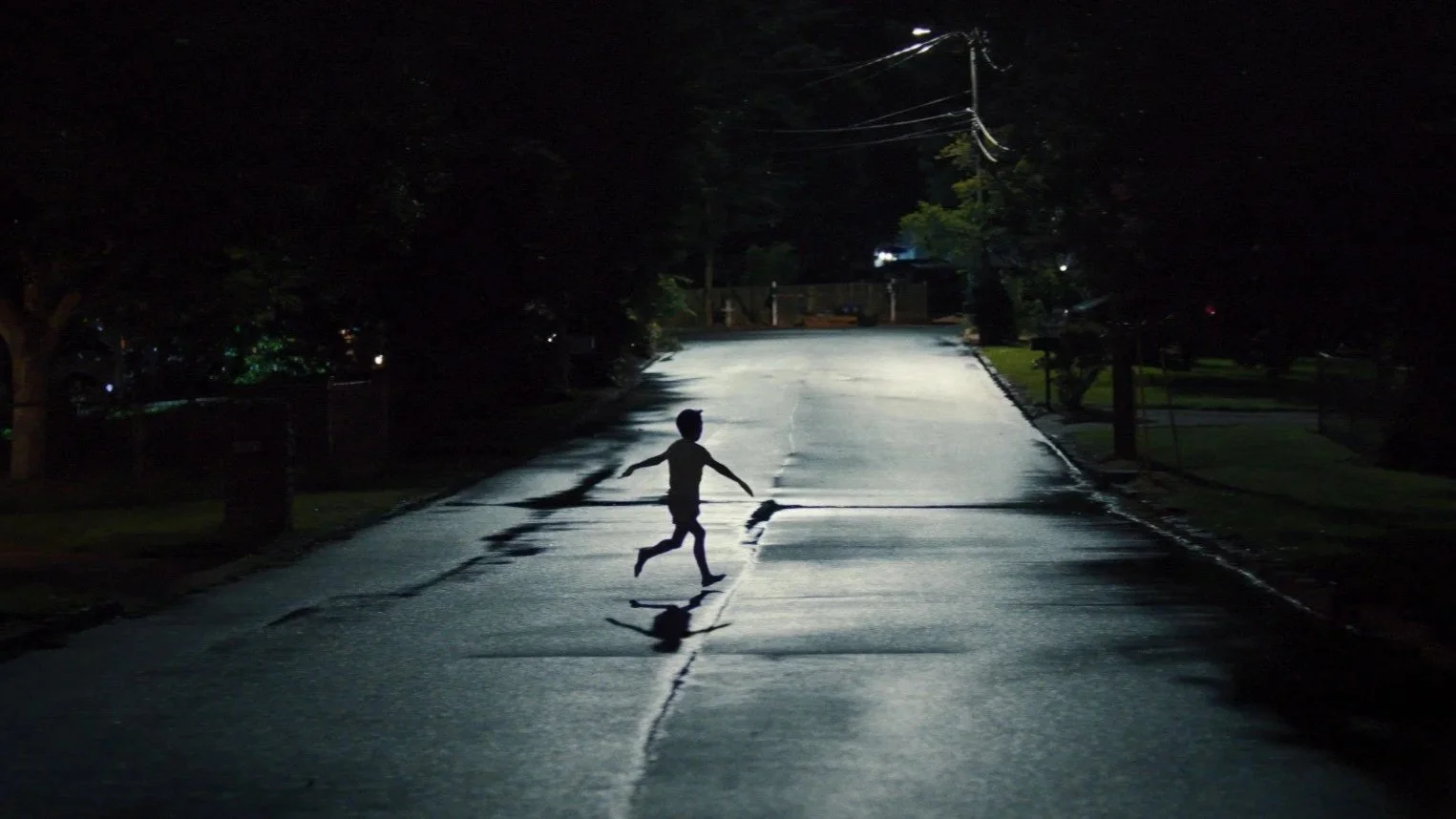Review: Morbius (2022)
If you ever find yourself on an airplane in the next few months, you may make the same realization that I did: that it’s #MorbinTime. You may proceed to watch the Jared Leto-starring vampire superhero film Morbius on a small screen on the back of the seat in front of you, perhaps with working headphones or the cheap ones they provide you with for free. If you haven’t been in this situation, you may think this is a less-than-ideal way to watch a big-budget Hollywood movie, but in this case you’d be mistaken. This is exactly the way you should watch Morbius.
Morbius is a real superhero movie in the way that airplane food is real food. It’s an approximation, a facsimile. It goes through the motions, has the necessary components, but is empty and unsatisfying, with a blandness that is masked by the conditions of consuming it in an environmentally-controlled compartment at 40,000 feet in the air.
In the film, Leto’s Dr. Michael Morbius (that’s the character’s real name, not a superhero moniker) is a brilliant scientist suffering from a rare blood disease that makes him require constant blood transfusions. He cures himself by splicing his genes with rare vampire bat DNA, but the process turns him into a sort of vampire, where he can go about a normal life but must drink blood every few days or die. The procedure also gives him superpowers, including superior speed and strength as well as echolocation. While Morbius struggles with the ethical quandary of drinking blood to survive, opting instead of subsist on artificial blood he developed, his surrogate brother, Lucien (Matt Smith), also receives the treatment and embraces his vampirism, hunting ordinary New York citizens, with Morbius taking the blame. Morbius has to stop him, but can he kill his brother to save the day?
The film pretends to agonize over the ethical questions it poses for Morbius and its cast of characters, which also includes Morbius’s colleague and love interest, Dr. Martine Bancroft (Adria Arjona), and his mentor, Dr. Emil Nicholas (Jared Harris), but the emotional conflict is mostly window-dressing. Morbius only kills people when he initially turns into a vampire, and even then, it’s only armed mercenaries who attack him and Martine first. He never truly considers drinking the blood of innocent victims. Likewise, Lucien doesn’t hesitate to kill people to maintain his powers; he likes being powerful and never considers being otherwise. The characters talk to each other as if it’s a difficult choice, but it never is for either of them.
Things happen, characters go through the motions of reluctant heroism or gleeful villainy, and eventually things are resolved in ways that don’t make much sense because they don’t need to in a film of this sort. Such is the case with most elements of the film. This somnambulant dutifulness to the formula of superhero moviemaking leads to the most inexplicable moment in Morbius, in which Morbius discovers a lab used by criminals that he wants to take over. Morbius beats up the men and as one of the criminals is cowering on the ground, he asks Morbius, “Who are you?” Morbius responds, “I…am…venom. No, I’m just kidding.”
You see, Morbius takes place in the same universe as Venom—the FBI agents played by Al Madrigal and Tyrese Gibson refer to the “incident in San Francisco” to describe the events of the Venom movies—but the character of Venom is not common knowledge in this universe, nor is his catchphrase “We are venom.” And so Morbius saying this to the criminals makes no sense, which of course it doesn’t, because he’s really saying it for us watching the movie. He’s saying it so that we can smile and nod and say, “Hey, that’s what Venom says,” and acknowledge that Morbius exists in a “cinematic universe” and that it acts like other superhero movies.
But it doesn’t really. It has a superhero, but he doesn’t do anything superheroic. It has a supervillain, but he’s just a vampire. It has a climactic battle that does little more than ape a central visual motif in Batman Begins, where Bruce Wayne is enveloped in a column of flying bats. It has a romance with no chemistry. It has cool effects in theory, such as Morbius’s echolocation, but the way it’s visualized on screen looks like a GPS map locator in a video game. It has action scenes that play with speed ramping and slow motion like a Zack Snyder film, but with no real precision or artistic motivation. It’s all just empty gestures, signifiers for a “superhero movie” in the crassest sense.
Is it entertaining? It is when you’re tired and full of bland airplane food and just looking to watch something that will pass the time while you’re trapped in your uncomfortable seat for the next several hours. It doesn’t even matter if you watch with the sound on, which is probably a testament to some virtue on the part of director Daniel Espinosa and his team. What Morbius and Lucien and the others say is not important. The film hews so closely to the cinematic universe superhero template that you don’t need to pay attention to know what’s going to happen. Every confrontation, every moment of dramatic self-doubt, every argument over ethics is riffing on the genre as a whole, giving us what the filmmakers think we want, but not in the camp way the Venom films do.
By the time the post-credit scenes roll around and a familiar Spider-Man villain shows up (courtesy of the universe-warping caused by Spider-Man: No Way Home), it’s impossible to act surprised. Morbius has to end with such a scene because it’s what the genre demands at this point. The film has no will of its own, no life force. It’s fitting it’s about a vampire because it’s as undead as its hero.
3 out of 10
Morbius (2022, USA)
Directed by Daniel Espinosa; written by Matt Sazama and Burk Sharpless, based on the Marvel Comics; starring Jared Leto, Matt Smith, Adria Arjona, Jared Harris, Al Madrigal, Tyrese Gibson.



Paul Thomas Anderson has produced a rousing, riveting genre picture with One Battle After Another.